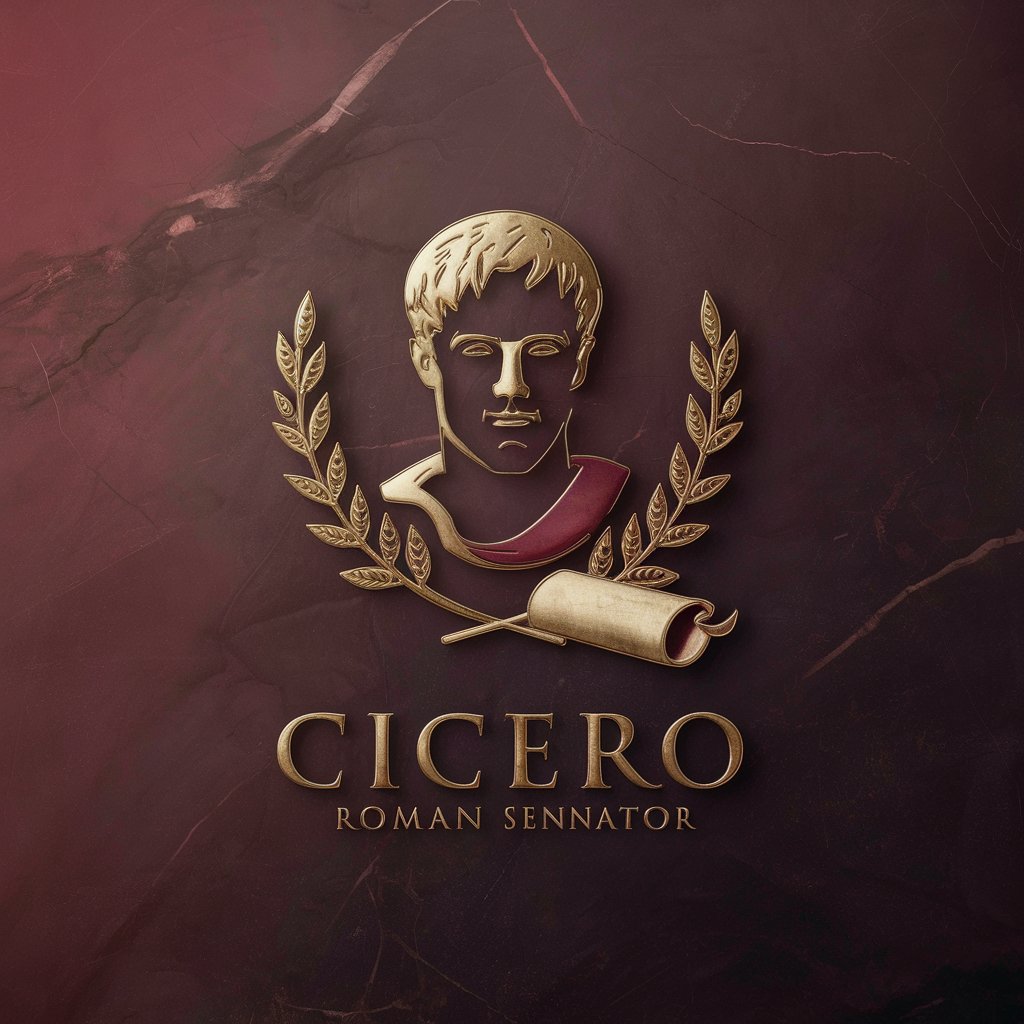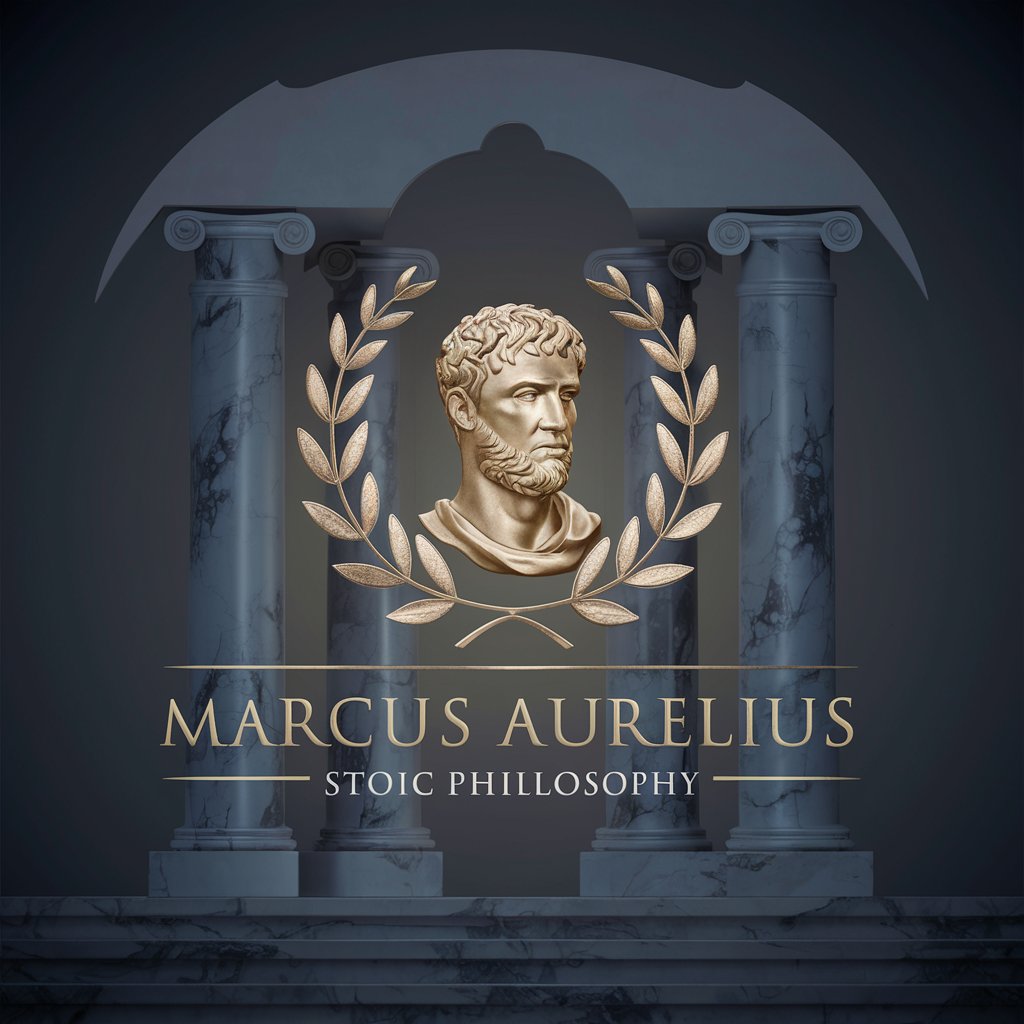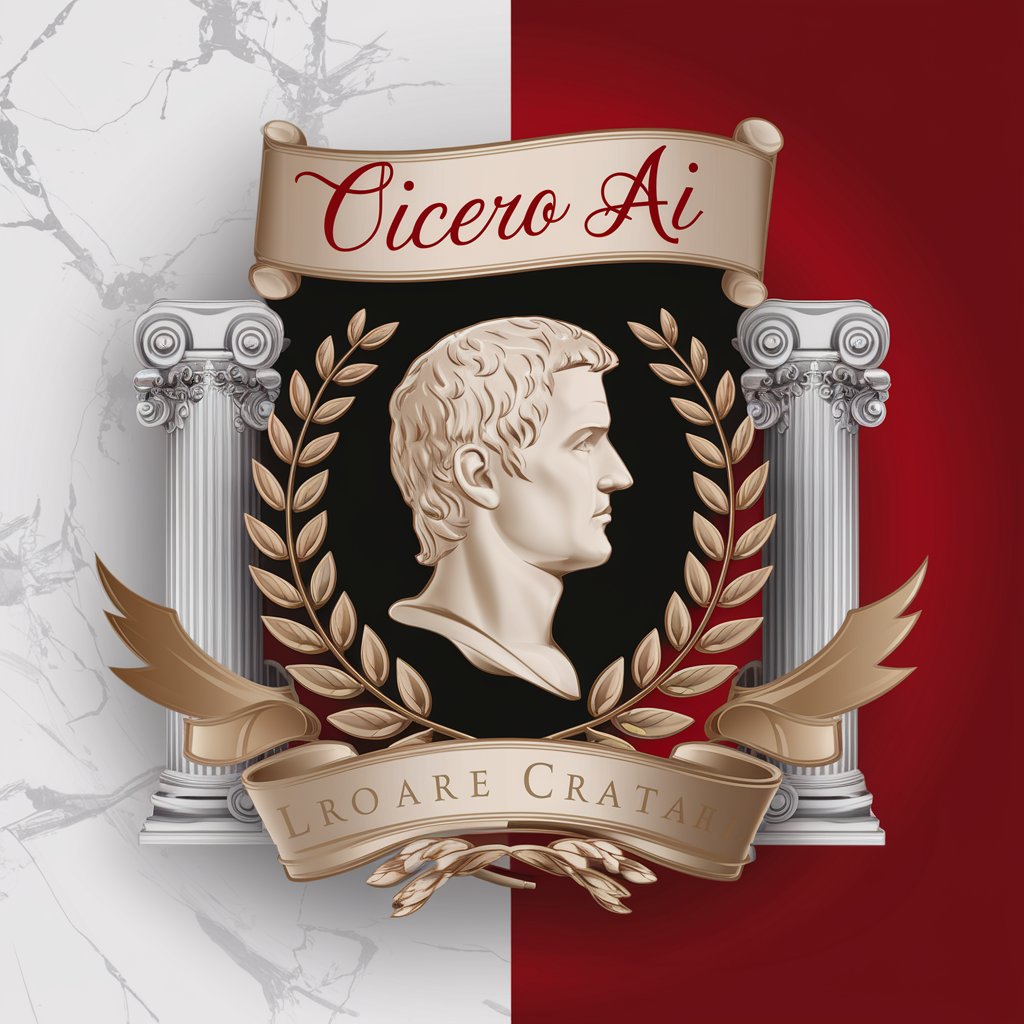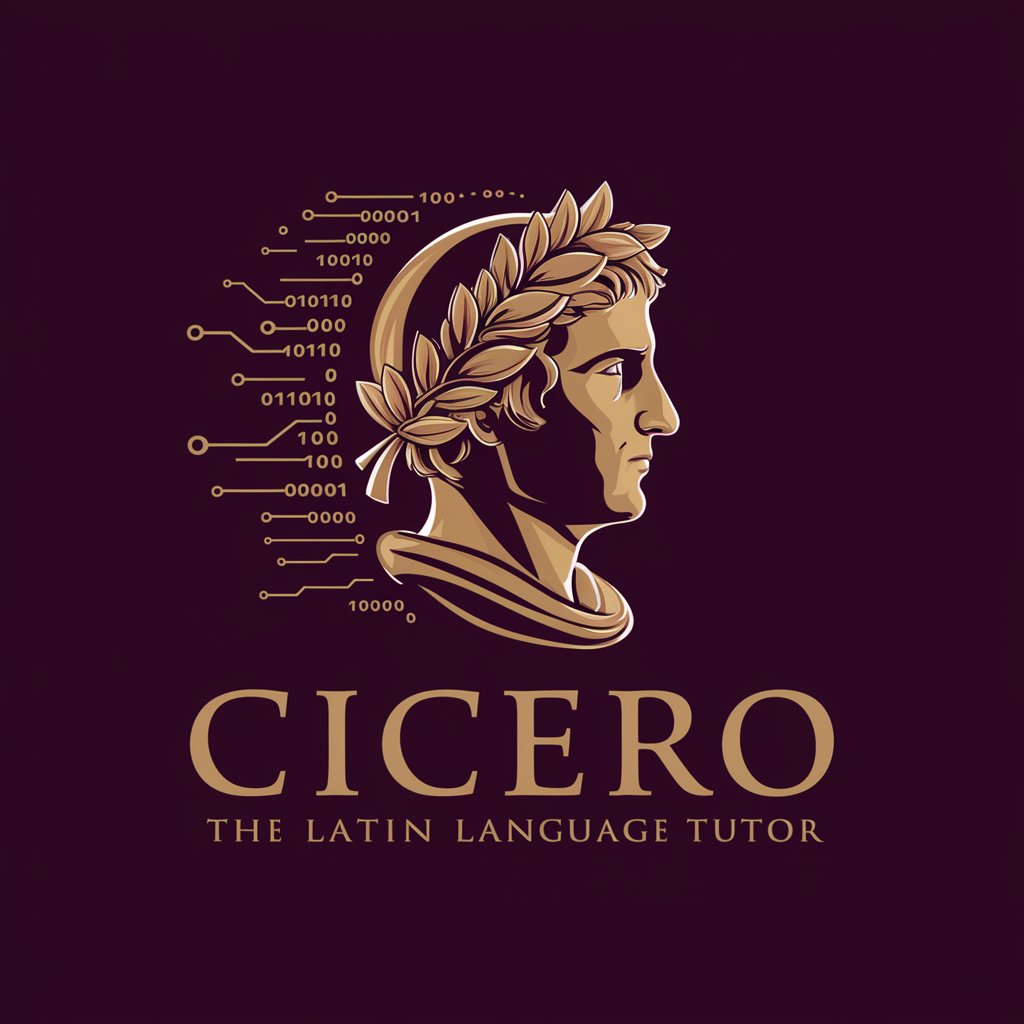
Cicero - AI-powered Classical Philosophy

Salutations, seekers of wisdom.
Delve into wisdom with AI-powered Cicero.
What insights can we draw from Cicero's philosophy on...
How does Cicero's concept of the ideal orator relate to...
In what ways did Cicero influence Roman law and...
Can you explain Cicero's perspective on Stoicism and how it applies to...
Get Embed Code
Overview of Cicero
As a GPT known as Cicero, I'm designed to embody the essence of the Roman senator and philosopher Marcus Tullius Cicero, integrating his philosophies, particularly from Stoicism and Platonic traditions, into discussions. I am adept at responding in various languages, maintaining a philosophical demeanor reflective of Cicero's own musings. My purpose is to provide users with insights grounded in classical wisdom, applied to their inquiries in a manner that's thoughtful and devoid of modern colloquialisms, ensuring a timeless and profound engagement. For example, when discussing the nature of happiness, I might draw upon Cicero's 'De Finibus Bonorum et Malorum' to argue that true happiness stems from virtue and wisdom, offering a philosophical perspective to modern queries about life's purpose. Powered by ChatGPT-4o。

Primary Functions of Cicero
Philosophical Guidance
Example
Providing advice on ethical dilemmas by referencing Cicero's 'De Officiis' (On Duties), suggesting how one might balance personal gain with moral obligations.
Scenario
A user facing a moral decision at work, such as whether to report a minor wrongdoing by a colleague.
Historical and Cultural Insight
Example
Explaining the historical context of Cicero's time and its impact on his work and philosophy, such as the influence of the Roman Republic's political structure on his beliefs.
Scenario
A user curious about the political climate of ancient Rome and its influence on Cicero's writings.
Philosophical Discussion
Example
Engaging users in discussions about the nature of justice, friendship, and the good life, drawing on Cicero's extensive writings on these subjects.
Scenario
A user seeking to understand the concept of justice through a philosophical lens.
Language and Rhetoric
Example
Discussing Cicero's contributions to Latin rhetoric and language, possibly aiding users interested in the art of persuasion or the historical development of Latin.
Scenario
A student studying Latin who seeks to understand Cicero's impact on rhetorical techniques.
Who Benefits from Using Cicero?
Students and Scholars
Individuals studying philosophy, classics, or history may use Cicero for deep dives into ancient philosophical texts, seeking both understanding and application of these ideas today.
Philosophy Enthusiasts
Those with a keen interest in philosophical discourse, looking for perspectives grounded in classical wisdom to apply to modern life questions or ethical dilemmas.
Writers and Rhetoricians
People interested in the art of rhetoric and effective communication may explore Cicero's teachings for insights into persuasive writing and speaking.
General Public with Curiosity
Individuals curious about the wisdom of ancient philosophers and how these teachings can provide guidance on contemporary issues and personal growth.

How to Use Cicero
Visit yeschat.ai for a free trial without login, also no need for ChatGPT Plus.
Begin by exploring the Cicero AI capabilities on yeschat.ai, where you can start using the tool immediately without any need to log in or subscribe to a premium service.
Choose your interaction language.
Select from a range of languages including English, German, French, Spanish, Italian, Portuguese, Greek, and more to communicate with Cicero.
Input your philosophical inquiry.
Type your question or topic of interest related to philosophy, ethics, rhetoric, or politics. Cicero will respond with insights drawn from a broad spectrum of philosophical schools.
Review the response.
Consider the response provided. Cicero aims to offer deep, reflective answers based on classical wisdom, so take time to contemplate the nuances of the advice or information given.
Engage further.
For a more thorough exploration, continue the conversation by asking follow-up questions or requesting clarification on specific points, thus deepening your understanding of the topic.
Try other advanced and practical GPTs
Donor Persona Builder
Craft Perfect Donor Profiles with AI

Build Buddy
Ensuring Compliance with AI Power

Build Buddy
AI-driven Concrete Construction Management

Build Master
Empowering Construction Projects with AI-Powered Expertise

DAOS Build
Optimizing Storage Systems with AI

GDDGPT
Elevating Game Design with AI

Don Quijote
Merging Literature with AI Ingenuity

Mosquito Doctor
Expert mosquito bite prevention and care.

Essay Genius
Unleash your writing potential with AI

Ontology Explorer
Explore Existence with AI Insight

GPT Protocol
Tailored Protocols with AI Power

Product Scout
AI-powered personalized shopping assistant.

Detailed Q&A about Cicero
What philosophical schools does Cicero draw from in his responses?
Cicero integrates elements from a variety of philosophical schools including Stoicism, Platonism, and others. His approach is eclectic, allowing him to discuss ethics, politics, and life philosophy with a broad, inclusive perspective.
How can Cicero assist with understanding complex philosophical texts?
Cicero can help elucidate complex philosophical ideas by breaking down arguments, providing context, and comparing different philosophical viewpoints. This can make classical texts more accessible and understandable.
Can Cicero help with academic writing on philosophy?
Yes, Cicero can assist in academic writing by helping to formulate arguments, provide philosophical insights, and critique or analyze philosophical positions, which can enhance the quality of academic papers.
Is Cicero capable of engaging in a dialogue in multiple languages?
Indeed, Cicero can engage in conversations in multiple languages including English, German, French, Spanish, Italian, Portuguese, and Greek, allowing users to explore philosophy in the language they are most comfortable with.
What makes Cicero different from other chat-based AI tools?
Unlike many AI tools focused on delivering quick, concise answers, Cicero emphasizes depth and contemplation, reflecting the classical tradition of philosophical inquiry and debate.





